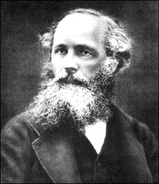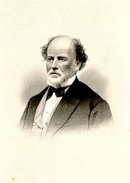Reply to "The Errors of Christian Identity Doctrine"
Following is one reply to this article:
The Errors of Christian Identity Doctrine
After
briefing scanning the article, one of the first major errors easily
exposed in the writing is the author's error in not including the
English word "nations" as a possible translation for the original
Greek's ethnos:
Ethnos
"What must be understood first is the importance that Christian
Identity places upon the word 'ethnos' to support their system. It is
taught that ethnos, although most often translated 'heathen,'
'Gentiles,' or 'people,' is referring specifically to the 'sent out and
scattered' House of Israel, otherwise known as the diasporia of the 'Ten
Lost Tribes.'"
The author lists the three English words ethnos is "most often translated" as "heathen, Gentiles, or "people."
But wait, I checked Strongs Concordance and I found this:
The KJV translates Strongs G1484 (ethnos) in the following manner: Gentiles (93x), nation (64x), heathen (5x), people (2x).
Oops! the author must not have read Strongs or simply missed the fact that the word ethnos is translated 64x as "nation."
The
author's preferred translation, heathen, is, according to Strong's,
only translated five times for ethnos. That's only 7.8 % that of nation.
And, it could be demonstrated that Gentiles, translated 93 times for
ethnos, should never be translated Gentiles, allowing for the very real
possibility that the vast majority of the time ethnos is used in the
Greek, it should be translated nations, completely destroying the
authors position that only three words "heathen, Gentile or people," are usually used to translate
the Greek word ethnos.
Galatians 1:16 could have been translated "That I (Paul) might announce
Him among the nations." This quite acceptable translation goes against
the statement made by the author: "Galatians 1:16, where Paul declares
that he was called to preach to the heathen, which word does not in any
way imply, or distinguish, a diasporia.(sic)"
Oh,
yes indeed ethnos, translated as nation, and not as heathen, in verse 16 does imply and distinguish Paul's fellow Israelites scattered
throughout Galatia.
Why does the author leave out "nations" as a possible correct translation for the word ethnos in Galatians 1:16?
There are only two possible answers:
1)
He simply didn't know that "nations" was translated 64 times in the KJV
and was clearly a possible English option for ethnos, and therefore
didn't include it in his writing, or
2)
He knew the word ethnos could also be translated "nations" and thus
provide evidence contrary to his argument that "which word (ethnos) does
not in any way imply, or distinguish, a diasporia.(sic)".
If #1 is the case, the author is a poor researcher. This lack of research skills puts him suspect for the rest of his writings.
If #2 is the case, the author is purposely attempting to mislead.
Once
one actually does his own research, which in this case research discovered the
author, for whatever his reasons, left out the word "nations" from a
part of the discussion where the proper translation would have direct
bearing on the meaning of the passage, which meaning would contradict
the agenda of the author attempting to show others "The Errors of
Christian Identity Doctrine."
The
author quite likely estimates that very few will study what he wrote (I
Thes 5:21), fewer less who will apply critical thinking and then
compare those thoughts with the thoughts of those he respects for their
objective scholarship and intellectual honesty, and can thus get by
with this pretzel theology.
There is an apt Scriptural truth that applies here. I'm sure most of you reading this know what it is.
Further, if we determine the meaning of the Greek word ethnos, which is, according to Strong's:
- a multitude (whether of men or of beasts) associated or living together
- a company, troop, swarm
- a multitude of individuals of the same nature or genus
- the human family
- a tribe, nation, people group
We can safely come to the conclusion, as most Christian Racial Identists do, that Paul was announcing to his kinsmen in Galatia, kinsman who composed the same tribe, or nation, or people group as himself, who said plainly (Philippians 3:5) he was of the stock of Israel, of the tribe of Benjamin, that Yahshua the Christ was their Kinsman Redeemer.



















